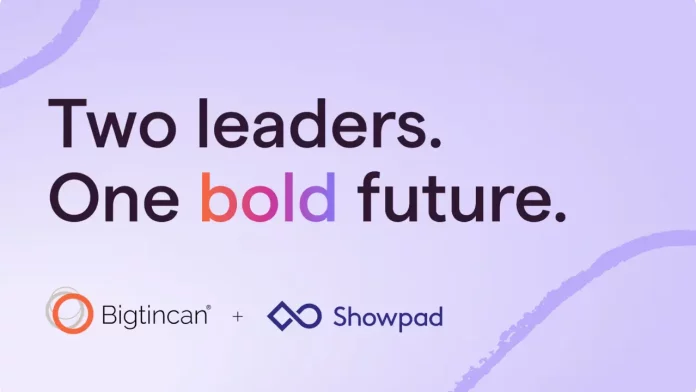The sales enablement landscape is about to undergo a big transformation as Vector Capital announces plans to acquire Showpad and merge it with Bigtincan, with the deal expected to close in 2025.
This isn’t just another tech acquisition, it’s designed to be a strategic move to dominate what industry insiders are calling a $12bn market. Once the merger is complete, the combined entity will operate under the Showpad brand, bringing together two complementary powerhouses with a shared vision of AI-powered revenue enablement.
Why This Matters Now
The timing matters, as organisations strive to equip their distributed revenue teams with smarter tools. The merger addresses a fundamental challenge: how to unite marketing and sales under one intelligent platform while delivering personalised customer experiences at scale.
Hendrik Isebaert, CEO of Showpad said: “This transaction marks a pivotal moment for organizations driving commercial excellence. By combining Showpad’s flexible platform with Bigtincan’s AI capabilities, we are empowering teams to work smarter, sell faster, and engage customers in new and creative ways they never thought possible.”
The strategy is sound. Showpad has built its reputation on its Enablement Operating System (eOS), which unites marketing and sales teams around content and training. Bigtincan brings sophisticated AI capabilities and a track record of creating personalised buying experiences. Together, they’re positioning to solve what many see as the holy grail of sales enablement: truly intelligent, adaptive revenue operations.
What Sales Enablement Leaders Should Know
For sales enablement professionals, this merger signals a number of important shifts:
The AI Race is Real: This deal underscores how important AI has become in sales enablement. Organisations that haven’t started their AI journey could risk falling behind as these combined capabilities set new market standards.
Platform Consolidation Continues: The merger also reflects a broader trend toward comprehensive revenue enablement platforms rather than point solutions. Sales teams want fewer tools that do more, not more tools that do less.
Global Scale Matters: Jim Hopkins, Chairman of Bigtincan, emphasised the geographical complementarity of the deal. For enterprise clients, this means better global support and more consistent experiences across regions.
Customer Experience Focus: Both companies have built their reputations on improving the buying experience. The merger doubles down on this customer-centric approach, suggesting that sales enablement platforms will increasingly be judged on buyer satisfaction, not just seller efficiency.
The Competitive Landscape Shifts
With heavyweight clients such as Nike, AT&T, Dow, GE Healthcare, and Coca-Cola EuroPacific Partners already in their combined portfolio, the merged entity will command significant market influence. This could accelerate innovation cycles and force competitors to respond with their own strategic moves.
The deal also highlights Vector Capital’s broader strategy in the sales enablement space. Vector acquired Bigtincan in April 2025, making this merger part of a deliberate roll-up strategy to create a dominant player in revenue enablement.
What to Watch For
As the deal progresses toward its expected 2025 closing, sales enablement leaders should monitor several key developments:
Product Integration: How quickly and seamlessly will the two platforms integrate? Early integration announcements could provide competitive advantages.
Talent Retention: Successful mergers in tech often hinge on keeping key talent. Watch for leadership announcements and team stability indicators.
Customer Migration: Existing customers of both platforms will be watching closely for migration paths and feature continuity. How this is handled will set the tone for the combined company’s customer-centric claims.
Pricing Strategy: Will the merger lead to more competitive pricing through economies of scale, or will market dominance translate to pricing power?
The Bottom Line
This merger represents more than corporate maneuvering, it’s a bet on the future of how revenue teams will operate. As AI becomes table stakes and customer expectations continue to rise, the combined Showpad-Bigtincan platform is positioning itself to define what next-generation sales enablement looks like.
For sales enablement professionals, the message is clear: the market is consolidating around comprehensive, AI-powered platforms that prioritise customer experience alongside seller effectiveness. Organisations still relying on fragmented tool stacks or legacy approaches may find themselves at an increasing disadvantage.
The question isn’t whether AI will transform sales enablement, it’s whether an organisation will be leading that transformation or scrambling to catch up.




